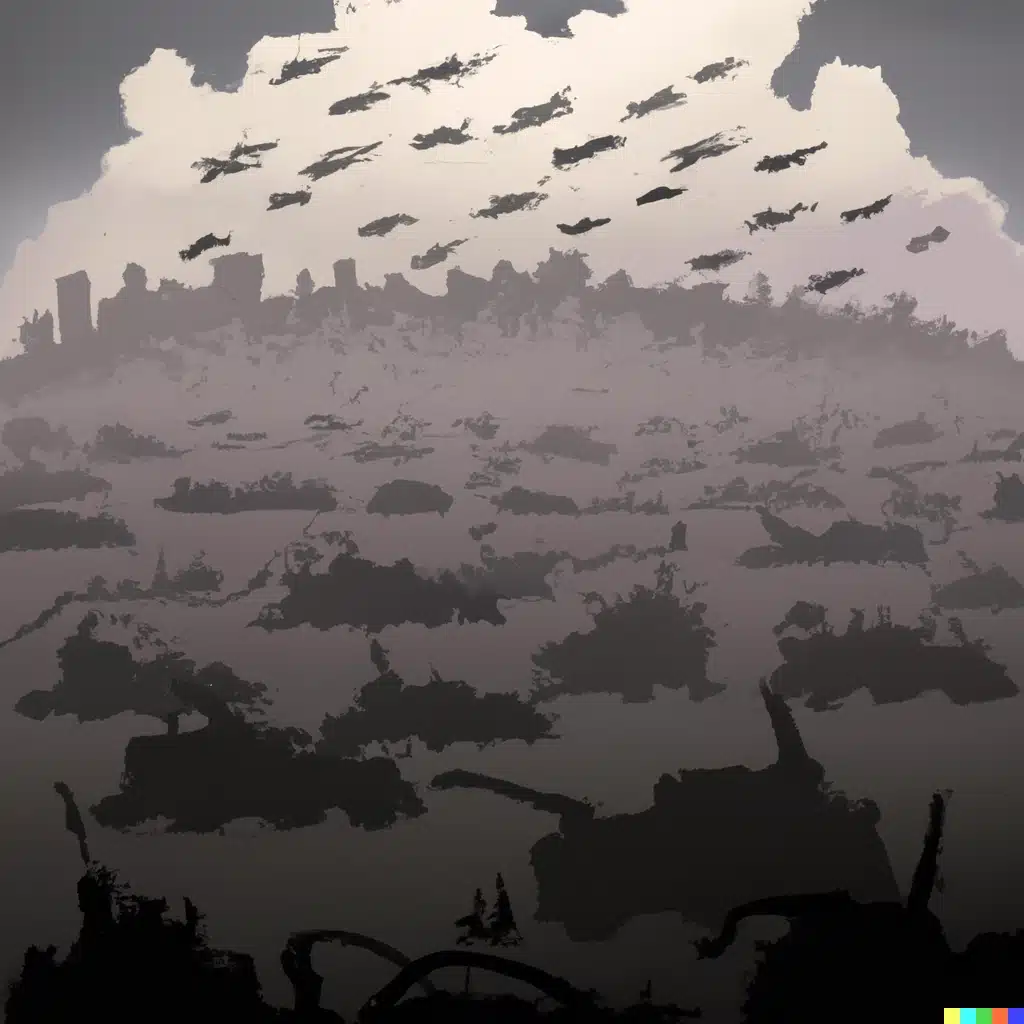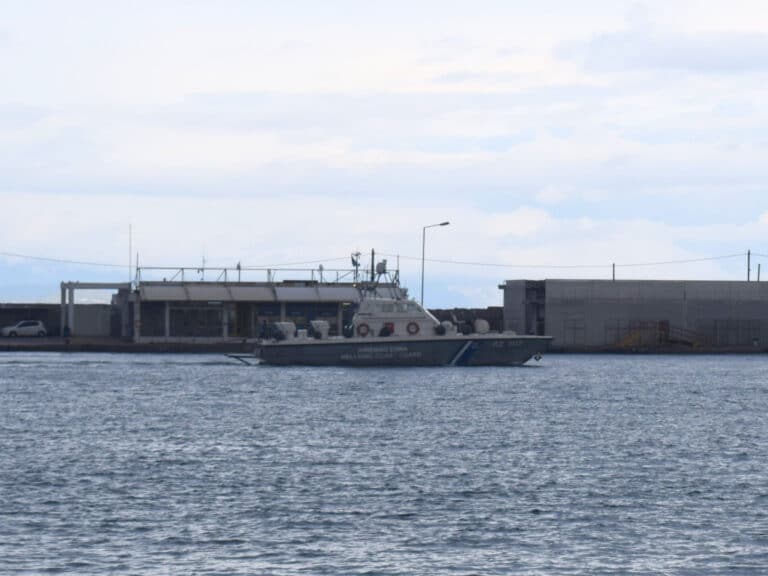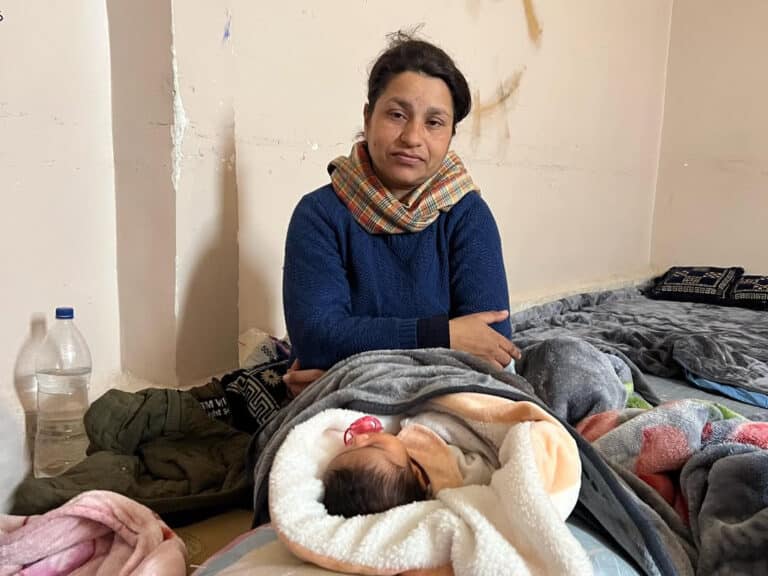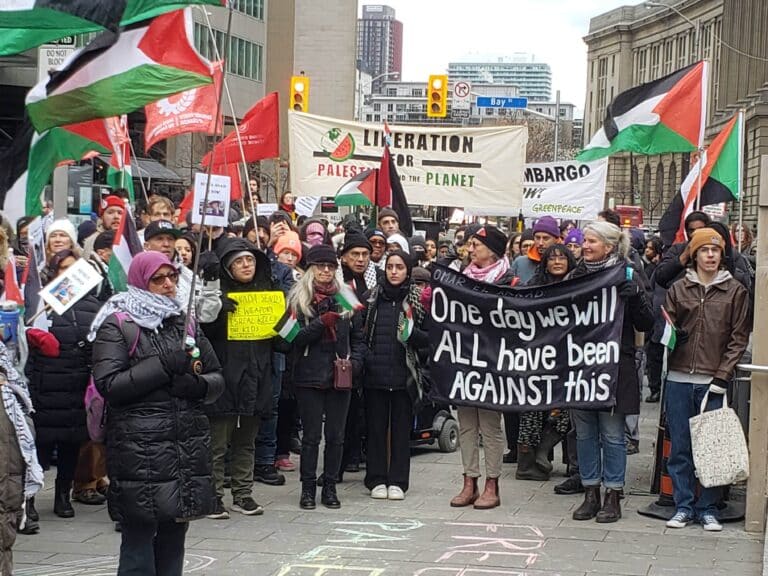Climate anxiety is real. The quickening pace at which our natural world is deteriorating is cause for concern. A recent headline warned that arctic sea ice may be completely gone by the 2030s, a decade earlier than predicted [Smithsonian Magazine]. Meanwhile, record temperatures are drying out vegetation and resulting in extreme wildfires across Canada this summer. Over the past ten years, wildfires burned around 150,000km on average in the month of May. This May, roughly 2.7 million hectares of forest have been lost [The Real News].
Climate change is a result of the capitalist and imperialist exploitation of natural resources. One of the largest contributors to the exacerbation of the climate crisis is the world’s military—if it were a country, it would place 4th in the world, following the emissions of China, the United States, and India and ranking above Russia.
This year as CPT focuses on demilitarization, we want to highlight the ways in which military actions affect human and environmental well-being in the regions where our teams work and invite you to pledge to honour the air and declare your solidarity with those fighting for climate justice.
On Turtle Island, (United States and Canada), Indigenous communities resist oppression from extractive industries and are met with a militarized response from the state, resulting in air pollution from the use of tear gas and pepper spray. In Wet’suwet’en territory, constant RCMP patrols, private security company trucks, and bulldozers dismantling Land Defender camps release dust and particulate matter into the air, causing respiratory issues for nearby communities.
The military in Colombia is responsible for protecting and sustaining the oil industry. In Barrancabermeja, the largest refinery in the country is located next to a military base. CPT has witnessed the harmful effects of this partnership between the military and the oil industry on the local community. The refinery produces a significant amount of fumes and exhaust that cause irritation to the eyes and throats of residents. Neighbourhoods frequently experience noxious odours and oil workers have suffered permanent health damages even though the city claims chemical releases are “within acceptable levels.”
The Turkish state and NATO aircraft are contributing to air pollution in the Iraqi Kurdistan (IK) region, releasing pollutants during military operations that burn large areas of land and destroy trees. The US military’s use of depleted uranium (DU) weapons in Iraq also contributes to air pollution, potentially causing long-term health effects on civilians. The global thirst for oil further deteriorates air quality where the Kurdistan Regional Government’s failure to reduce gas flaring increases the risk of fatal impacts on the civilian population. According to NASA’s research, Duhok Province is the worst area in the Middle East regarding environmental conditions, with bombings and the increasing number of oil refineries causing harm to residents.
Israeli militarism affects every aspect of Palestinian’s lives in ways seen and unseen. One of the most pressing unseen problems in Palestine is air pollution, and a large portion of the poor air quality is directly tied to Israel’s militaristic domination and expansion. The Israeli propaganda machine uses “greenwashing” to promote the country as environmentally friendly, but in reality, Israel engages in many practices of environmental harm, from diversion of traffic by checkpoints to logging, to illegal dumping of waste, which disproportionately affect the Palestinian population.
Pray for a world without militaries. Pray for justice for the communities and partners we organize alongside who are disproportionately affected by the climate crisis. Pray for steadfastness in the face of such a monstrous military-industrial complex.




